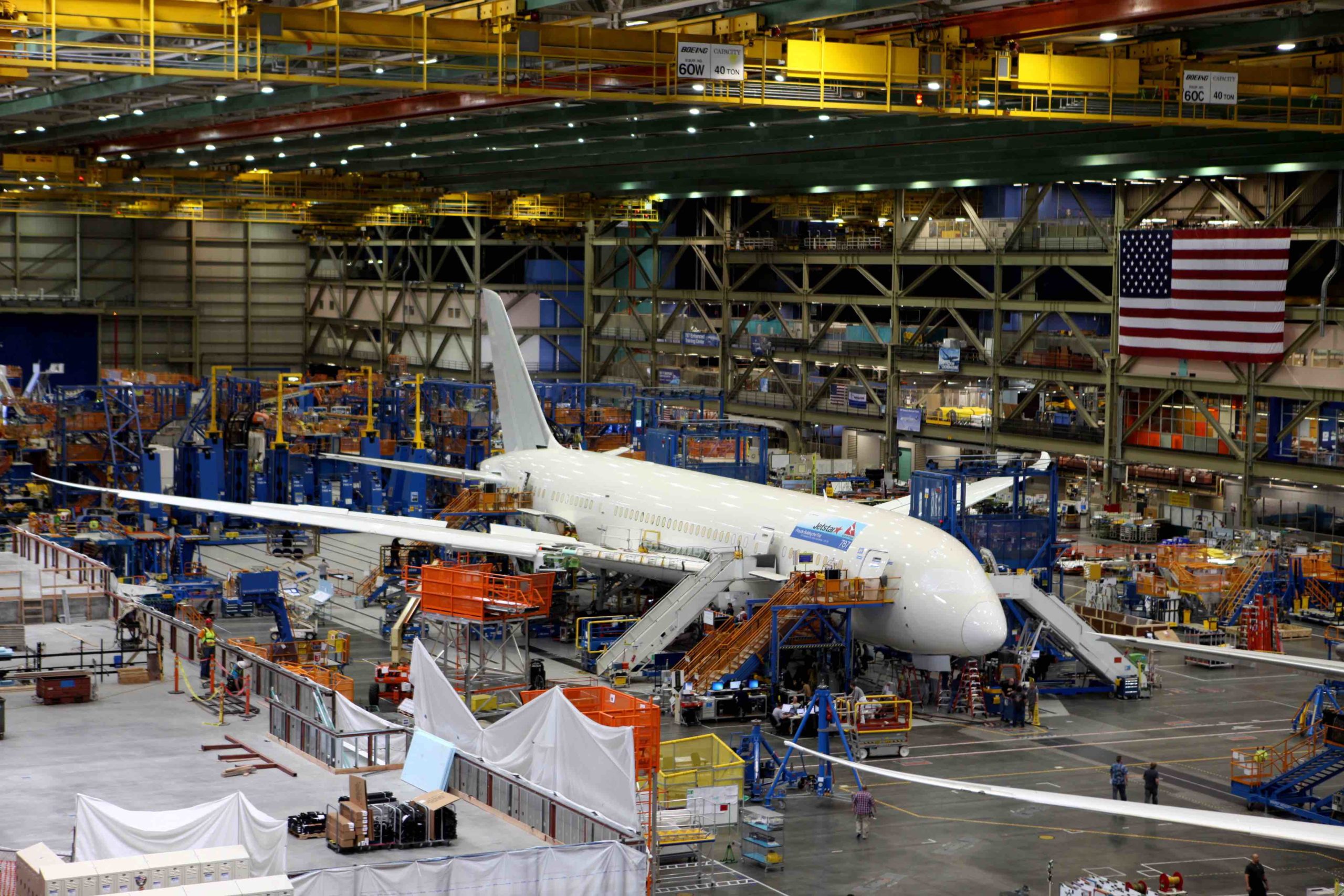Boeing Quality Control Manager: The Backbone Of Aerospace Excellence
In the world of aerospace engineering, quality control plays a pivotal role in ensuring safety, reliability, and compliance. The Boeing Quality Control Manager is at the heart of this process, ensuring that every aircraft produced meets the highest standards of quality and performance. As the global aviation industry continues to evolve, the role of quality control managers at Boeing has become even more critical in maintaining the company's reputation for excellence.
Boeing, as one of the leading aerospace manufacturers globally, relies heavily on its quality control systems to ensure that its products meet stringent regulatory requirements. The quality control manager at Boeing is responsible for overseeing these processes, ensuring that every aircraft component and system functions seamlessly. This role demands a deep understanding of aerospace engineering principles, regulatory compliance, and advanced quality management techniques.
The importance of quality control in aerospace cannot be overstated. With billions of dollars invested in each aircraft and millions of lives depending on their reliability, the role of Boeing quality control managers is not just a job—it is a responsibility that directly impacts the safety and efficiency of air travel worldwide. In this article, we will delve into the responsibilities, qualifications, and challenges faced by Boeing quality control managers while exploring the latest trends and innovations in quality management within the aerospace sector.
Read also:Oxnard Garbage Schedule Your Ultimate Guide To Waste Management
Table of Contents
- The Role of Boeing Quality Control Manager
- Key Responsibilities
- Qualifications and Skills
- Challenges in Quality Control Management
- Tools and Technologies Used
- Industry Standards and Regulations
- Innovations in Quality Control
- Career Path and Opportunities
- Importance of Quality Control in Aerospace
- Conclusion and Call to Action
The Role of Boeing Quality Control Manager
The Boeing Quality Control Manager is a key figure in the aerospace manufacturing process. This role involves overseeing all aspects of quality assurance and control, ensuring that every aircraft component meets the required standards. The manager is responsible for implementing quality management systems, conducting audits, and addressing any issues that arise during the production process.
Quality control managers at Boeing work closely with engineers, production teams, and suppliers to ensure that all materials and processes are up to standard. They also play a vital role in training employees on quality management principles and ensuring that everyone in the organization understands the importance of maintaining high-quality standards.
Leadership and Team Management
One of the primary responsibilities of a Boeing quality control manager is leadership. They lead a team of quality assurance professionals who are responsible for monitoring production processes and identifying potential quality issues. Effective leadership and team management are essential for maintaining a high level of quality across all stages of production.
Key Responsibilities
Boeing quality control managers have a wide range of responsibilities that span from operational oversight to strategic planning. Below are some of the key responsibilities associated with this role:
- Conducting regular quality audits to ensure compliance with industry standards.
- Developing and implementing quality management systems that align with Boeing's goals.
- Identifying and addressing quality issues in real-time to prevent delays in production.
- Collaborating with cross-functional teams to improve processes and reduce defects.
- Training employees on quality management principles and best practices.
Ensuring Regulatory Compliance
Quality control managers must ensure that all Boeing products comply with international regulations such as those set by the Federal Aviation Administration (FAA) and the European Union Aviation Safety Agency (EASA). This involves staying updated with the latest regulatory requirements and ensuring that all processes and procedures meet these standards.
Qualifications and Skills
Becoming a Boeing quality control manager requires a combination of education, experience, and specific skills. Below are some of the key qualifications and skills needed for this role:
Read also:Ken Carson New Tattoo 2024 A Deep Dive Into The Ink Thatrsquos Making Waves
- A degree in engineering, quality management, or a related field.
- Several years of experience in quality control or a similar role within the aerospace industry.
- Proficiency in quality management systems such as ISO 9001 and AS9100.
- Strong analytical and problem-solving skills.
- Excellent communication and leadership abilities.
Continuous Learning and Development
Given the rapidly evolving nature of the aerospace industry, continuous learning and development are crucial for quality control managers. This includes attending industry conferences, participating in training programs, and staying informed about the latest technological advancements in quality management.
Challenges in Quality Control Management
While the role of a Boeing quality control manager is rewarding, it is not without its challenges. Below are some of the key challenges faced by quality control managers in the aerospace industry:
- Managing complex supply chains and ensuring that all suppliers meet quality standards.
- Dealing with the increasing complexity of modern aircraft systems.
- Addressing the growing demand for faster production cycles while maintaining quality.
- Adapting to new regulations and industry standards.
Supply Chain Management
One of the most significant challenges for Boeing quality control managers is managing the supply chain. With thousands of suppliers providing components for each aircraft, ensuring that all parts meet the required quality standards is a complex task. This requires close collaboration with suppliers and regular audits to verify compliance.
Tools and Technologies Used
Boeing quality control managers utilize a variety of tools and technologies to ensure that quality standards are maintained throughout the production process. Some of the key tools and technologies used include:
- Computer-Aided Design (CAD) software for analyzing product designs.
- Statistical Process Control (SPC) systems for monitoring production processes.
- Data analytics tools for identifying trends and potential quality issues.
- Quality management software for tracking and managing quality data.
Advancements in Technology
Advancements in technology have significantly improved the capabilities of quality control managers. For example, the use of artificial intelligence and machine learning algorithms allows for more accurate predictions of potential quality issues, enabling proactive rather than reactive management.
Industry Standards and Regulations
The aerospace industry is governed by a strict set of standards and regulations designed to ensure safety and reliability. Boeing quality control managers must be well-versed in these standards, which include:
- ISO 9001: The international standard for quality management systems.
- AS9100: The aerospace-specific quality management standard.
- FAR Part 21: The Federal Aviation Regulation governing the certification of aircraft.
Compliance and Certification
Ensuring compliance with these standards is a critical aspect of the quality control manager's role. This involves not only implementing the necessary processes and procedures but also obtaining and maintaining relevant certifications. Regular audits and inspections are conducted to verify compliance and identify areas for improvement.
Innovations in Quality Control
The field of quality control is constantly evolving, with new innovations being introduced to improve efficiency and accuracy. Some of the latest innovations in quality control include:
- Advanced data analytics for real-time monitoring of production processes.
- Internet of Things (IoT) devices for remote monitoring and control.
- 3D printing for rapid prototyping and production of complex components.
Impact of Technology on Quality Control
These innovations have had a profound impact on the role of quality control managers. By leveraging advanced technologies, managers can identify and address quality issues more quickly and effectively, leading to improved product quality and reduced production times.
Career Path and Opportunities
A career as a Boeing quality control manager offers numerous opportunities for growth and development. With the global aerospace industry projected to grow significantly in the coming years, the demand for skilled quality control professionals is expected to increase. This presents an excellent opportunity for those interested in pursuing a career in this field.
Advancement Opportunities
Quality control managers can advance to higher-level positions such as director of quality or vice president of quality assurance. These roles involve greater responsibility and decision-making authority, making them attractive to experienced professionals seeking to further their careers.
Importance of Quality Control in Aerospace
Quality control is essential in the aerospace industry due to the high stakes involved. The safety and reliability of aircraft depend on the quality of their components and systems. Any failure in quality control can result in catastrophic consequences, making it imperative that Boeing and other aerospace manufacturers maintain rigorous quality standards.
Impact on Safety and Reliability
The role of Boeing quality control managers in ensuring safety and reliability cannot be overstated. By maintaining strict quality standards, they help prevent accidents and ensure that every aircraft produced is safe for operation. This not only protects the lives of passengers and crew but also maintains the reputation of Boeing as a leader in the aerospace industry.
Conclusion and Call to Action
In conclusion, the role of Boeing quality control managers is crucial in maintaining the high standards of quality and safety that the aerospace industry demands. Through their expertise, leadership, and dedication, these professionals ensure that every Boeing aircraft meets the highest standards of performance and reliability. As the industry continues to evolve, the importance of quality control will only increase, making this role even more vital in the future.
We invite you to share your thoughts and experiences regarding quality control in the aerospace industry. Do you have any questions or insights to add? Please leave a comment below and join the conversation. Additionally, feel free to explore other articles on our site to learn more about the fascinating world of aerospace engineering and quality management.


